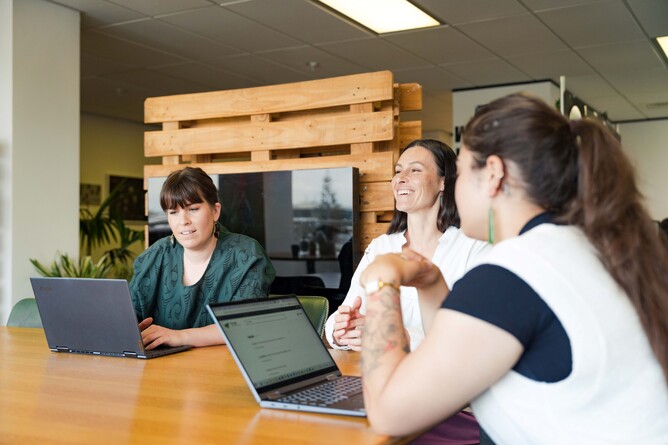Going beyond "buying local"
In today's globalised world, the idea of buying local holds significant value, both economically and ethically. When we opt to support local businesses, we not only contribute to the growth of our communities but also foster a sense of connection and responsibility towards the land and its people. In this article, we delve into the essence of buying local, with a particular focus on supporting Manawhenua businesses in Aotearoa.
Defining "local"
The definition of "local" often stirs up debate due to its varied interpretation. For some, it implies supporting businesses within their immediate township or city, while others perceive it as embracing a broader regional or national perspective. To some, purchasing items labelled as "New Zealand made" or "Kiwi-owned" constitutes buying local, whereas for others, it signifies owner-operated stores within their local township. The waters further muddy when considering global corporations with a presence in Aotearoa yet funneling their profits offshore.
The significance of Manawhenua
From a Māori perspective, the concept of "local" extends beyond mere geography.
Manawhenua, is a term used to describe iwi who have ancestral ties to a specific region. Unlike the conventional notion of locality based on residency, Manawhenua have deep whakapapa connections to the land, encompassing the maunga (mountains), wai (waterways) and whenua (land). These tribes carry the ancestral knowledge, traditions, and guardianship of their whenua, making them the epitome of local identity and stewardship.
Empowering Manawhenua businesses
When it comes to buying local, there is an opportunity to whakamana Manawhenua by empowering Manawhenua owned businesses. This doesn’t necessarily mean buying from an Iwi, it means supporting whanau owned businesses who have whakapapa connections to the Manawhenua Iwi. By supporting Manawhenua businesses, buyers not only invest in quality products and services but also contribute to the economic and social well-being of Manawhenua communities.
Identifying Manawhenua businesses
Despite the significance of supporting Manawhenua businesses, identifying them can be challenging. However, several strategies can help organisations make informed choices:
Understanding Manawhenua in your region: Take the time to learn about the Manawhenua tribes or iwi in your area. Understanding their history, values, and aspirations can guide your support towards their businesses.
Building relationships: Establishing genuine relationships with Manawhenua communities fosters trust and mutual respect.
Utilising business directories: Some Iwi will have their own business databases to find Manawhenua businesses. National platforms like Amotai have filtering functionality to members to filter by Iwi.
Seeking Expert Guidance: Puna Awarau provide expert assistance and resources for those seeking to support Manawhenua businesses. From business development to cultural awareness to procurement planning, Puna Awarau can help.
Supporting Manawhenua businesses goes beyond mere transactions; it's a commitment to cultural outcomes, economic empowerment, and sustainable development. By choosing to buy local, individuals not only contribute to the prosperity of Māori communities but also uphold the values of inclusivity, diversity, and stewardship.
Conclusion
In conclusion, buying local isn't just a matter of convenience or cost-effectiveness—it's a reflection of our commitment to community, culture, and sustainability. By prioritising Manawhenua businesses in our purchasing decisions, we support Manawhenua whānau, hapu and Iwi and contribute to a more equitable and resilient future for all.


